The Resurgence Of Fantasy
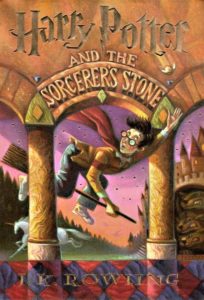 For years authors—the few, the proud, and the prolific—who wrote fantasy seemed to write only one type of story: the dwarfs-and-elves classic fantasy taking place in a medieval setting. Then along came Harry Potter and a handful of other stories. Suddenly fantasy mushroomed into a wide array of sub-genres, from urban fantasy to dystopian, fairytale, post-apocalyptic, steampunk, and a host of others.
For years authors—the few, the proud, and the prolific—who wrote fantasy seemed to write only one type of story: the dwarfs-and-elves classic fantasy taking place in a medieval setting. Then along came Harry Potter and a handful of other stories. Suddenly fantasy mushroomed into a wide array of sub-genres, from urban fantasy to dystopian, fairytale, post-apocalyptic, steampunk, and a host of others.
At one point, young adult fiction took over the genre. Seemingly, every other YA book was some type of fantasy, and the best-seller lists were dominated by the likes of series such as Harry Potter (the latter books no longer falling into the middle grade category), Twilight, and Hunger Games.
Vampires and dark retellings of fairy tales hit the small screen, too, but in the book industry, the interest in fantasy of any kind seemed to be slowing. In fact, science fiction appeared to be the new point of interest.
Until classic fantasy re-emerged.
 I don’t know what the catalyst was. I do know several young adult series such as A Throne Of Glass by Sarah Maas and Falling Kingdoms by Megan Rhodes harkened back to classic fantasy. And then there was Lev Grossman‘s recently concluded trilogy: The Magicians, The Magician King, and The Magician’s Land.
I don’t know what the catalyst was. I do know several young adult series such as A Throne Of Glass by Sarah Maas and Falling Kingdoms by Megan Rhodes harkened back to classic fantasy. And then there was Lev Grossman‘s recently concluded trilogy: The Magicians, The Magician King, and The Magician’s Land.
Grossman in particular seems to be an apologist for fantasy. In a phone interview last August with The Atlantic, he said, after praising C. S. Lewis (“He came up with a new way to describe magic that made it feel realer than it ever had”) and Narnia in particular,
I bristle whenever fantasy is characterized as escapism. It’s not a very accurate way to describe it; in fact, I think fantasy is a powerful tool for coming to an understanding of oneself. The magic trick here, the sleight of hand, is that when you pass through the portal, you re-encounter in the fantasy world the problems you thought you left behind in the real world. Edmund doesn’t solve any of his grievances or personality disorders by going through the wardrobe. If anything, they’re exacerbated and brought to a crisis by his experiences in Narnia. When you go to Narnia, your worries come with you. Narnia just becomes the place where you work them out and try to resolve them.
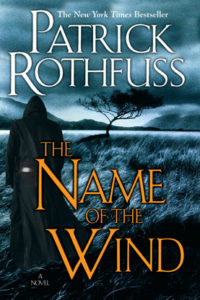 Patrick Rothfuss, author of The Kingkiller Chronicle and other related books set in the same world, hasn’t hurt the status of classic fantasy either. Nor has Brandon Sanderson with his completion of Robert Jordan’s Wheel of Time series and his own Mistborn series.
Patrick Rothfuss, author of The Kingkiller Chronicle and other related books set in the same world, hasn’t hurt the status of classic fantasy either. Nor has Brandon Sanderson with his completion of Robert Jordan’s Wheel of Time series and his own Mistborn series.
Christian fantasy, late to the prom with dystopian and post-apocalyptic fantasy, seems primed to take advantage of this new resurgence of classic fantasy. Among others, Jill Williamson will be releasing in the near future a traditional type fantasy from Bethany House, along the lines of her Blood Of Kings trilogy.
Classic fantasy—largely epic fantasy—is what I most like to read and what I happen to write. But I’m seeing the genre move in a different direction. There’s a distinct movement away from Tolkien remakes. Writers are taking a fresh approach in the storytelling, in the worldbuilding, and in the creation of the characters. Above all, the aim seems to be to avoid the predictable.
Which is as it should be, as far as I’m concerned. Stories are retreads. We can’t seem to get away from that. It’s the “no new story” truth we all live with. But there are unique ways of presenting stories, new twists, characters who “don’t belong” yet show up that can make a story feel new.
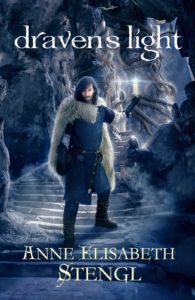 Whether it’s Anne Elisabeth Stengl‘s shape-shifting faeries or Patrick Carr‘s drunk protagonist or Jill Williamson‘s good bad guys and bad good guys, Christian fiction writers seem more than capable of keeping pace with the resurgence of classic fantasy.
Whether it’s Anne Elisabeth Stengl‘s shape-shifting faeries or Patrick Carr‘s drunk protagonist or Jill Williamson‘s good bad guys and bad good guys, Christian fiction writers seem more than capable of keeping pace with the resurgence of classic fantasy.
Long may it continue.
What’s your take on the fantasy genre? Are you surprised to see its resurgence? What do you think has led to it? (I have my theory, but I’d love to hear yours first).
































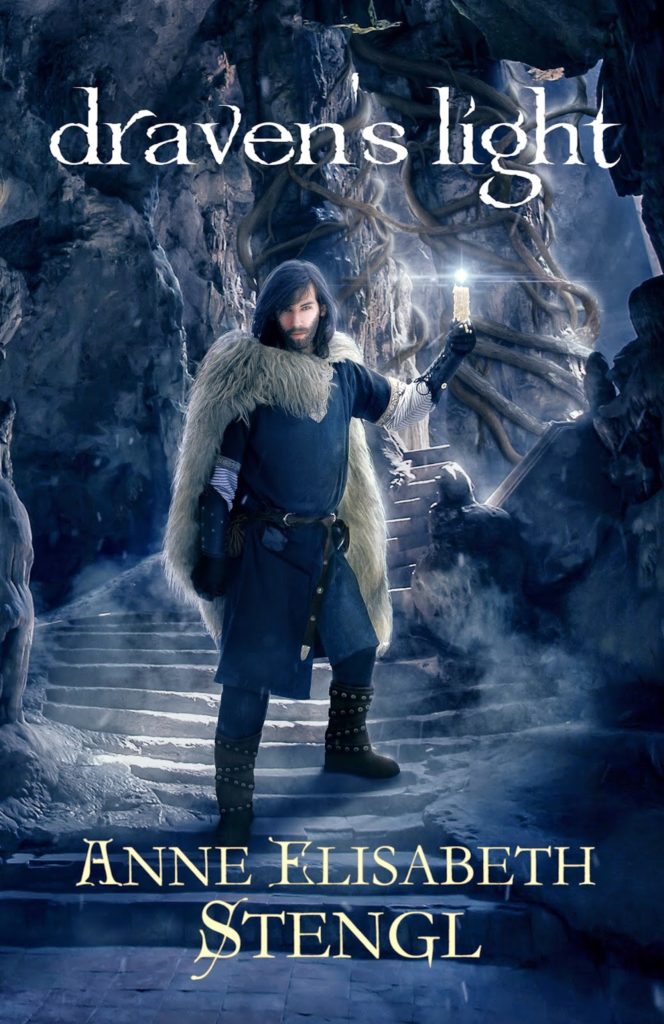

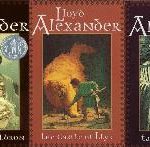







Fantasy is one of my favourite genres and in fact my first ever full-length novel was fantasy. (ala The Hobbit) I love that Fantasy, especially the style of Classic Fantasy is making a resurgence in both the Mainstream and CBA markets. And I can’t wait to read all of the upcoming Christian Fantasy novels.
I’m with you, Alyssa! 😀
Becky
Personally I’m not a huge fan of “classic” fantasy because it CAN be cliche. I like to see a new concept or twist when I read a book’s blurb, and if it seems predictable, I pass. Same thing for the worldbuilding. I like dragons, elves, dwarves, etc., but some fantasy stories feel a little “tired” to me.
So I think it’s great to see Christian fantasy branching out and being more than just Tolkien and Lewis imitations, with fresh and new takes on the classic genre. The Blood of Kings trilogy is one of my favorites. 🙂
That’s the point, though, Bethany. These books I mentioned don’t use the same tropes, so they are a new concept while remaining within the genre. For a time there it was as if people thought classic or epic fantasy had to be a Tolkien look-alike. That was the genre. Interestingly, I can’t recall any other Christian fantasy that has elves and dwarfs. I’m sure there are such books, but the ones I think of first leaned more toward allegory, much like C. S. Lewis, but not always with a portal into another world.
Becky
Good observation. I think that the impact of the Lord of the Rings films coming out around the same time (within a few years) of HP’s books/films, should also be considered.
Tim, I think the movies had a big impact on bringing fantasy out into the open. Patrick Rothfuss wrote fantasy for years, even won awards, but wasn’t widely known until fantasy was rediscovered.
I was afraid that when the movies ended, the interest of speculative fans would shift. And it did for a little while. But it’s back. 😀
Becky
I’m wondering if the resurgence of fantasy is because everything else has saturated the market. But that makes me also wonder if elves and dwarves and dragons are also quickly getting to that point, as well.
Pam, I definitely think elves and dwarves and dragons have saturated the market. I think these general market fantasies, like the Christian authors I know, are going in a different direction. So when I say “classic fantasy,” I don’t mean all the same tropes from Tolkien. Rather, there’s this old world feel, though the world is an invented place with its own magic.
You could be right about the other speculative genres, though I don’t think steampunk has been done over much. But dystopian, post-apocalyptic, even space opera . . . there’s not a lot new. I still enjoy Nadine Brandes’s story though. And Mary Weber has that superhero/classic fantasy/steampunk mash up thing going. 😉
Donita Paul has combined several genres too—parallel worlds, fairies, and dragons. It’s an interesting world, to be sure.
Becky
I agree. Fantasy is coming back in full force.
In large part I believe this is due to the yearning we have to understand the classic battle of good versus evil. Fantasy is one of the most effective ways of delivering those stories that make us reach back to our historic roots, drawing on the challenges of simpler times.
Scott, good points. Like you, I see fantasy as the most effective way to show the battle between good and evil. I think, though, this is one trope that people have labeled as overdone.
Consequently, heroes are more flawed and the sides of right and wrong are a lot harder to discern. In some ways I don’t know whether I like that or not. God is not muddled and evil is so very evil—except we are in a world calling evil, good and vice versa. So these stories may actually reflect what’s happening in our world.
“Simpler times.” That’s interesting. I’ve heard the same thing said about Amish fiction.
I actually like what Grossman said in the article I linked to (wish I could just have reblogged it!):
I don’t agree with the “you can get at it” part in the sense that it leaves God out, but I do think fantasy can show us our inner landscape, or the spiritual landscape—things we too often ignore or simply are blind to. That’s why I love it.
Becky
I agree. The world is calling evil good and calling good evil. The strength of good fantasy is to hold that line and demonstrate why God’s laws are to remain clear and consistent. I love that verse, “Jesus Christ is the same yesterday, today, and forever.” There is no changing God. People fluctuate like a fallen leaf on a windy day, but God is consistent.
I don’t really think fantasy ever left. I can only think of the eighties when it was secondary to science fiction, but ever since post-cyberpunk and Robert Jordan’s Wheel of Time, fantasy has been dominant in one form of another.
Christian fantasy, eh. I don’t even think we have any form of statistics telling what the market is like let alone if its resurging.
David, I know what you mean—people have continued to write fantasy for . . . forever, but there was a period when only fantasy nuts would read it. I used to go into Borders (when it was still around) and look for fantasy. They had it imbedded with the science fiction books, without notice to the customer that the genre even existed or that there were any books available.
That changed dramatically, but when urban fantasy and dystopian became so popular, agents who said what genres they were looking for were not including classic fantasy. They wanted the sub-genres, not the “old stuff.”
But in short order, that’s changed again. Now classic fantasy is once again on the list of “looking for.”
So none of this is actually built on statistics. It’s impression I’ve formed based on what’s available, what people are buying, what editors are acquiring, and what agents are looking for.
Becky
I have always loved fantasy, and it is what I write. And I tend to agree that fantasy has always had some great titles whether or not the genre is popular or not. Because I have been in a bit of a cocoon the last few years writing my historical fantasy trilogy, I haven’t caught up with the newer Christian fantasy books out there, but I want to catch up! I just read Patrick Carr’s A Cast of Stones, and I liked it! I have to say I was getting tired of what seemed to be the norm in Christian fantasy – the “allegory” story similar to the Narnia books. Mainly those don’t work for me. It was refreshing to read something different, and I’m looking forward to reading some of those titles you mentioned.
I loved the Magician trilogy. Great writing. I have to say I don’t particularly like the Young Adult fantasy genre but that’s just me.
Me, too, Lisa. And you’re right about the number of books/writers. I was mostly referring to the popularity of fantasy.
I think many people were tired of the allegory. Once you see it, the story can become predictable. I heard that’s why J. K. Rowling didn’t want anyone to know she was a professing Christian: she didn’t want people to read her books knowing how they’d turn out. I think a good story needs to present readers with the real possibility that the protagonist might fail or die. That’s why we care, why we keep reading.
Becky